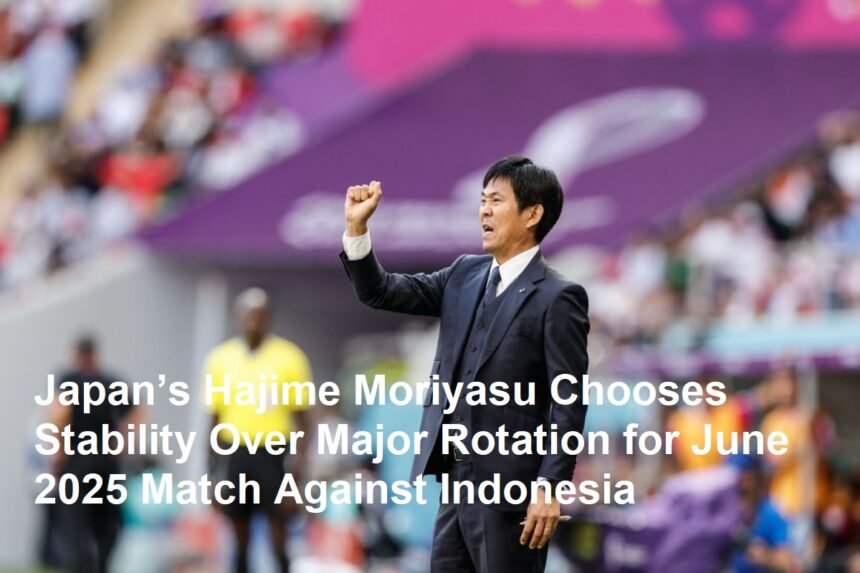In preparation for the upcoming international fixture against Indonesia in June 2025, Japan’s national team head coach, Hajime Moriyasu, has made a clear strategic decision: he will not implement a large-scale rotation of his squad and intends to retain his star players for the match. This approach highlights Moriyasu’s emphasis on consistency, team cohesion, and the importance he places on the encounter with Indonesia.
Context of the Match and Coach’s Strategy
The match against Indonesia is a significant fixture for Japan as it forms part of their broader campaign in international competitions, possibly linked to World Cup qualifiers or regional tournaments. Given the stakes, Moriyasu’s decision to maintain a stable lineup reflects his desire to field the strongest possible team to secure a positive result.
In international football, coaches often face the dilemma of balancing player workload with the need to win crucial matches. Rotating players can help manage fatigue and reduce injury risk, but it can also disrupt team chemistry and performance rhythm. Moriyasu’s choice to limit rotation suggests he prioritizes maintaining a well-drilled, cohesive unit over experimenting with new or less experienced players at this stage.
Reasons Behind Minimal Rotation and Retaining Star Players
Several factors likely influenced Moriyasu’s decision. First, the importance of the match itself cannot be overstated. Facing Indonesia, a competitive side in the Asian football landscape, Japan aims to assert dominance and secure vital points. Deploying the best players ensures maximum quality on the pitch.
Second, the coach’s confidence in his core group of star players is evident. These individuals bring experience, skill, and leadership, which are crucial in high-pressure situations. Their presence can inspire teammates and help manage the game’s tempo effectively.
Third, maintaining consistency in the lineup helps build tactical understanding. Football is a team sport where coordination and familiarity among players often determine success. By keeping his key players, Moriyasu ensures that the team’s tactical framework remains intact, allowing for fluid gameplay and strategic execution.
Implications for the Team and Players
Moriyasu’s approach has several implications. For the star players, it signals trust and responsibility. They are expected to perform at their best and lead the team both on and off the field. This can boost morale and motivation, knowing the coach values their contribution highly.
For the squad as a whole, limited rotation means that fringe or younger players may have fewer opportunities in this particular match. However, it also sets a clear message about the competitive standards required to break into the starting lineup. This can drive internal competition and encourage players to elevate their performance in training and future matches.
From a tactical perspective, the decision supports a stable game plan. The team can focus on refining specific strategies without the disruption of integrating many new players. This stability is often crucial in international fixtures where preparation time is limited.
Broader Context in Japanese Football
Moriyasu’s decision aligns with a broader philosophy often seen in successful national teams: valuing consistency and experience in key matches. Japan has a history of blending youthful energy with seasoned professionals, but when the stakes are high, coaches tend to rely on proven performers.
This strategy also reflects the competitive nature of Asian football, where margins between teams can be narrow. Ensuring the best players are on the field maximizes Japan’s chances of advancing in tournaments or qualifying campaigns.
Conclusion
In summary, Hajime Moriyasu’s choice to avoid a major squad rotation and keep his star players for the June 2025 match against Indonesia underscores his commitment to stability, experience, and tactical coherence. By fielding a strong, consistent lineup, Moriyasu aims to secure a crucial victory and maintain Japan’s competitive edge on the international stage. This decision not only highlights the importance of the fixture but also reflects a strategic mindset focused on long-term success and team unity. As the match approaches, fans and analysts alike will watch closely to see how this approach translates on the pitch and influences Japan’s footballing journey.









